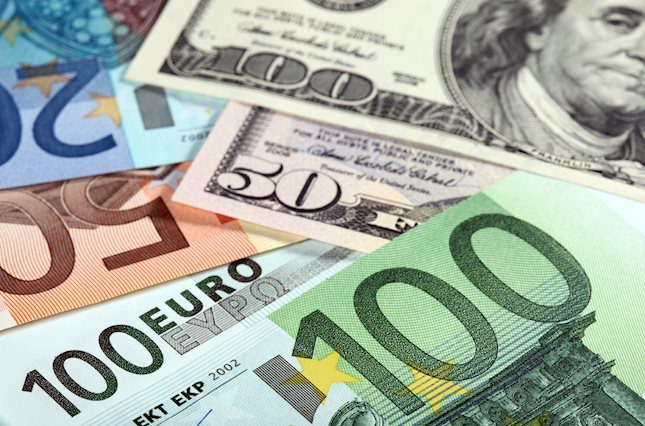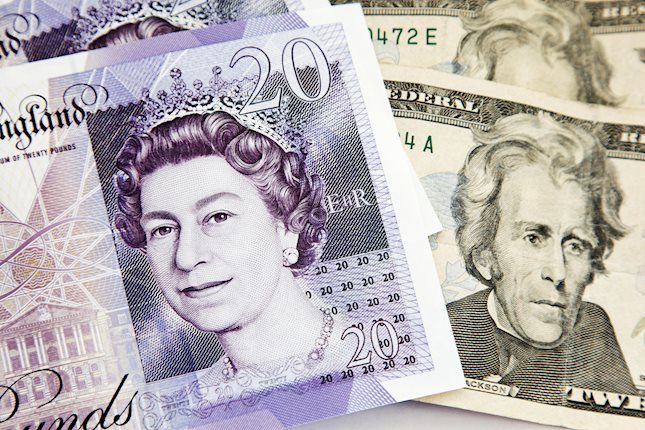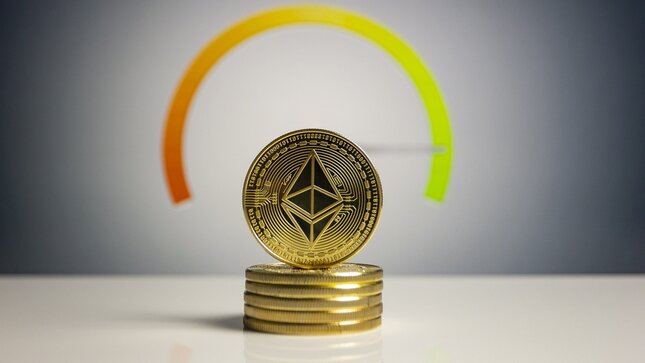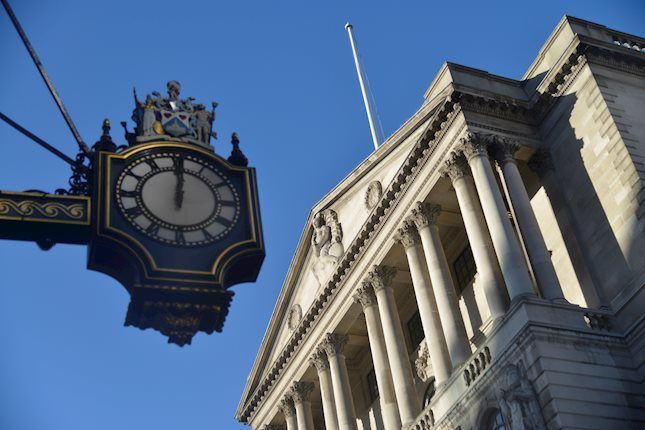- EUR/USD continues to lose ground as the ECB is widely expected to deliver a 25 basis point rate cut in October.
- The risk-sensitive Euro struggles due to safe-haven flows amid rising geopolitical tensions in the Middle East.
- The US Dollar receives support as recent US data challenge dovish expectations for Fed monetary policy.
EUR/USD continues its losing streak for the sixth successive session, trading around 1.1030 during the Asian hours on Friday. Lower Eurozone inflation reading raised expectations of a rate cut by the European Central Bank (ECB) in October, which would mark the central bank's third reduction this year.
Earlier this week, the Harmonized Index of Consumer Prices dropped to 1.8% year-over-year in September, falling below the ECB’s 2% target and lowest since April 2021. Markets reflect a 95% probability of a 25 basis point rate cut this month.
The risk-sensitive Euro may face challenges as escalating geopolitical tensions in the Middle East impact risk appetite. US President Joe Biden mentioned that the United States is in talks with Israel regarding potential strikes on Iran's Oil infrastructure.
Israeli Prime Minister Benjamin Netanyahu warned that Iran "will pay a heavy price" for Tuesday’s attack, which reportedly involved the launch of at least 180 ballistic missiles at Israel, according to the BBC.
The EUR/USD pair depreciates as the US Dollar (USD) receives support from a better-than-expected US ISM Services PMI and ADP Employment Change reports, which challenged dovish expectations for Federal Reserve (Fed) monetary policy.
US ISM Services PMI rose to 54.9 in September, from 51.5 in August and exceeding the market forecast of 51.7. The ADP US Employment Change report showed an increase of 143,000 jobs in September, surpassing the forecasted 120,000 jobs.
Euro FAQs
The Euro is the currency for the 19 European Union countries that belong to the Eurozone. It is the second most heavily traded currency in the world behind the US Dollar. In 2022, it accounted for 31% of all foreign exchange transactions, with an average daily turnover of over $2.2 trillion a day. EUR/USD is the most heavily traded currency pair in the world, accounting for an estimated 30% off all transactions, followed by EUR/JPY (4%), EUR/GBP (3%) and EUR/AUD (2%).
The European Central Bank (ECB) in Frankfurt, Germany, is the reserve bank for the Eurozone. The ECB sets interest rates and manages monetary policy. The ECB’s primary mandate is to maintain price stability, which means either controlling inflation or stimulating growth. Its primary tool is the raising or lowering of interest rates. Relatively high interest rates – or the expectation of higher rates – will usually benefit the Euro and vice versa. The ECB Governing Council makes monetary policy decisions at meetings held eight times a year. Decisions are made by heads of the Eurozone national banks and six permanent members, including the President of the ECB, Christine Lagarde.
Eurozone inflation data, measured by the Harmonized Index of Consumer Prices (HICP), is an important econometric for the Euro. If inflation rises more than expected, especially if above the ECB’s 2% target, it obliges the ECB to raise interest rates to bring it back under control. Relatively high interest rates compared to its counterparts will usually benefit the Euro, as it makes the region more attractive as a place for global investors to park their money.
Data releases gauge the health of the economy and can impact on the Euro. Indicators such as GDP, Manufacturing and Services PMIs, employment, and consumer sentiment surveys can all influence the direction of the single currency. A strong economy is good for the Euro. Not only does it attract more foreign investment but it may encourage the ECB to put up interest rates, which will directly strengthen the Euro. Otherwise, if economic data is weak, the Euro is likely to fall. Economic data for the four largest economies in the euro area (Germany, France, Italy and Spain) are especially significant, as they account for 75% of the Eurozone’s economy.
Another significant data release for the Euro is the Trade Balance. This indicator measures the difference between what a country earns from its exports and what it spends on imports over a given period. If a country produces highly sought after exports then its currency will gain in value purely from the extra demand created from foreign buyers seeking to purchase these goods. Therefore, a positive net Trade Balance strengthens a currency and vice versa for a negative balance.
Information on these pages contains forward-looking statements that involve risks and uncertainties. Markets and instruments profiled on this page are for informational purposes only and should not in any way come across as a recommendation to buy or sell in these assets. You should do your own thorough research before making any investment decisions. FXStreet does not in any way guarantee that this information is free from mistakes, errors, or material misstatements. It also does not guarantee that this information is of a timely nature. Investing in Open Markets involves a great deal of risk, including the loss of all or a portion of your investment, as well as emotional distress. All risks, losses and costs associated with investing, including total loss of principal, are your responsibility. The views and opinions expressed in this article are those of the authors and do not necessarily reflect the official policy or position of FXStreet nor its advertisers. The author will not be held responsible for information that is found at the end of links posted on this page.
If not otherwise explicitly mentioned in the body of the article, at the time of writing, the author has no position in any stock mentioned in this article and no business relationship with any company mentioned. The author has not received compensation for writing this article, other than from FXStreet.
FXStreet and the author do not provide personalized recommendations. The author makes no representations as to the accuracy, completeness, or suitability of this information. FXStreet and the author will not be liable for any errors, omissions or any losses, injuries or damages arising from this information and its display or use. Errors and omissions excepted.
The author and FXStreet are not registered investment advisors and nothing in this article is intended to be investment advice.
Recommended content
Editors’ Picks

EUR/USD struggles to hold above 1.0400 as mood sours
EUR/USD stays on the back foot and trades near 1.0400 following the earlier recovery attempt. The holiday mood kicked in, keeping action limited across the FX board, while a cautious risk mood helped the US Dollar hold its ground and forced the pair to stretch lower.

GBP/USD set to swoon on holiday-shortened week
GBP/USD waffled near the 1.2550 level on Monday, kicking off the holiday trading week with a third of a percent decline as market sentiment coils. Market volumes are set to drain out of global exchanges as investors broadly hang up their hats for the Christmas holiday, and global markets will be shuttered on Wednesday.

Gold flat lines above $2,600 ahead of holiday trading week
Gold price trades flat around $2,610 during the early Asian session on Tuesday. Markets face a relatively quiet trading session ahead of the holiday trading week. The US Richmond Fed Manufacturing Index for December is due later on Tuesday.

Ethereum risks a decline to $3,000 as investors realize increased profits and losses
Ethereum is up 4% on Monday despite increased selling pressure across long-term and short-term holders in the past two days. If whales fail to maintain their recent buy-the-dip attitude, ETH risks a decline below $3,000.

Bank of England stays on hold, but a dovish front is building
Bank of England rates were maintained at 4.75% today, in line with expectations. However, the 6-3 vote split sent a moderately dovish signal to markets, prompting some dovish repricing and a weaker pound. We remain more dovish than market pricing for 2025.

Best Forex Brokers with Low Spreads
VERIFIED Low spreads are crucial for reducing trading costs. Explore top Forex brokers offering competitive spreads and high leverage. Compare options for EUR/USD, GBP/USD, USD/JPY, and Gold.